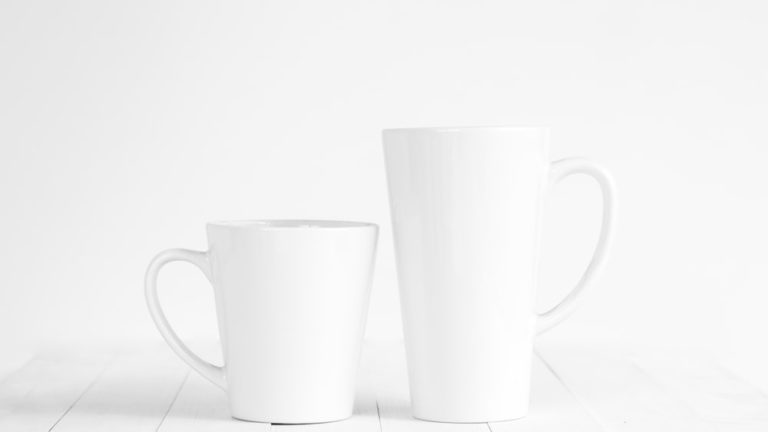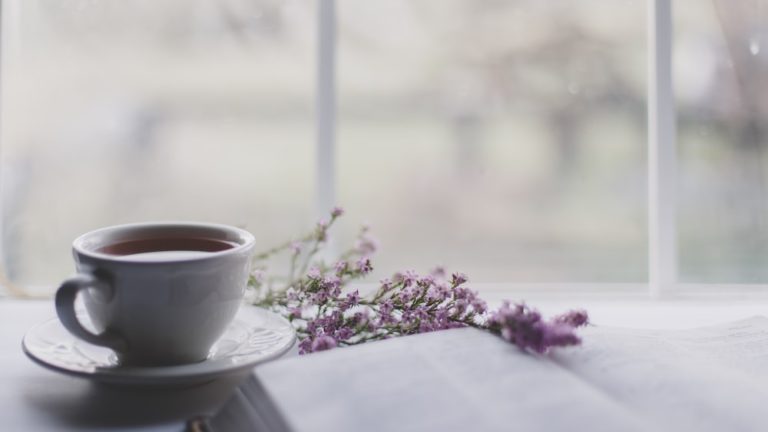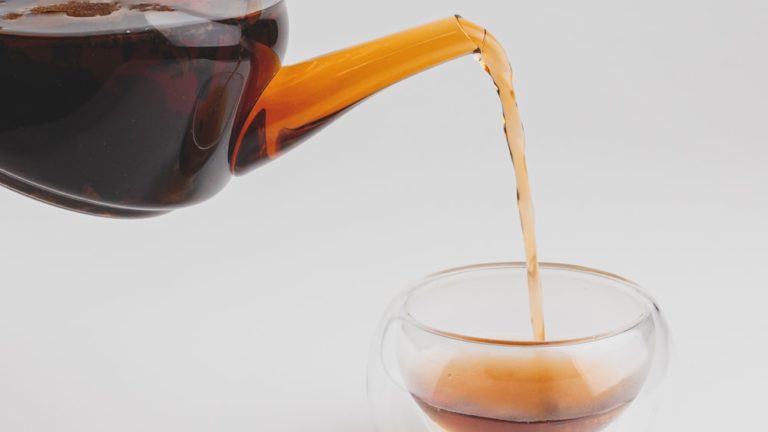Rooibos Tea And Histamine: Unveiling The Connection
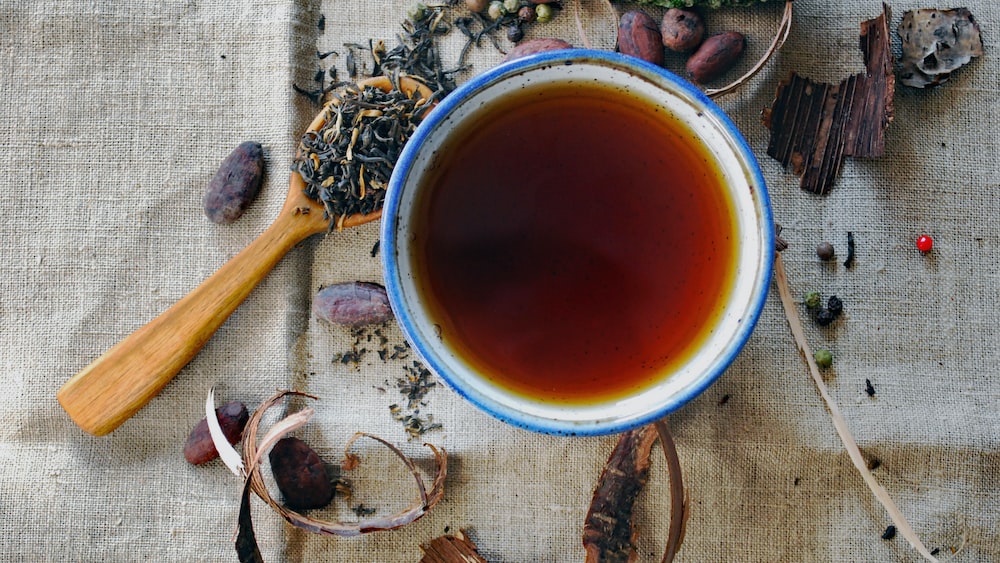
Rooibos Tea And Histamine: Unveiling The Connection
Hello, fellow tea aficionados and health enthusiasts! Has it ever crossed your mind that the innocent, aromatic cup of tea cradled in your hands could be more than just a delightful beverage? Shout out to everyone who’s ever thought about this (or even if you haven’t), because we’re about to divulge a scintillating tea tale – a tale woven around crinkly tealeaves and a compound you have probably heard about, but might not completely understand…histamine.
Yes, you read that right. There’s a connection between your beloved cuppa and that sneaky little molecule that’s notorious for causing allergic reactions. Hold your teacups (and your wits) tight, as we dive into the ocean of health benefits and fascinating facts surrounding rooibos tea histamine. I promise you, this is going to be quite a brew-haha (pun intended)!
Understanding Histamine and Its Role in the Body
Before we spill the tea on histamine’s not-so-secret affair with our beverages, let’s take a swift detour and acquaint ourselves with this biochemical rascal we call histamine.
What is Histamine?
Histamine is like that fastidious party organiser inside our bodies. It’s a biochemical compound that hangs out in our cells, especially the mast cells, always ready to spring into action when required. In simpler terms, histamine is pivotal in our body’s immune response – playing a triple role of the messenger, the clarion call, and the warrior.
Here’s why histamine is important: when any unwelcome, foreign substance (think allergens or infections) crashes our body – the health harmony party, so to say, histamine leaps into action. It’s the body’s automatic distress signal, and boy, does it know how to garner attention or what?
Histamine is like the fastidious party organiser inside our bodies, playing a triple role of messenger, clarion call, and warrior in our body’s immune response.
How Does Histamine Affect Health?
While histamine pinches in during emergencies, warning the body about intruders, it sometimes gets a little too zealous and ends up stirring up a health tempest. Now how does that happen, you wonder? Think of histamine as that enthusiastic friend who, eager to make the house party a hit, cranks up the music volume to its highest and ends up disturbing neighborly peace.

Oversensitive reactions (hello, allergies!) occur when histamine, intending to protect the body against allergens, overreacts dramatically and runs amok, creating discomfort levels that range from mild annoyances like rashes and itchiness to serious issues such as anaphylaxis.
The Connection Between Tea and Histamine
If I say tea and histamine are conjoined twins in a complicated relationship, would you believe me? Let’s shed light on this tea and histamine tangle.
General Overview of Tea and Histamine
In the global medley of beverages, tea holds a distinguished position. Revered worldwide for its therapeutic properties, it has bathed in the limelight of cultural discourses, Zen axioms, and scientific scrutiny. For ages, people have turned to tea, trusting its healing comfort for various ailments.
However, there’s a hushed secret the tea leaves hold – histamine. Yes, certain types of our beloved brew can contain surprising amounts of this sensitive molecule.
Why Some Teas are High in Histamine
Your favorite cup of green or black tea, fermented to perfection, can be a cocktail of bioactive ingredients – including histamine. Don’t break those teacups yet! Not all our steaming brews are offenders. Some teas, especially those that involve fermentation or aging in their preparation process, can have a higher histamine content.
This is because of the microbial activity encouraged during fermentation – a process similar to some of the body’s natural histamine production. So, your beloved fermented or aged tea could be cranking up the volume on your body’s histamine level, tipping it off balance (Did the thought make you drop your teacup?).
An In-depth Look at Rooibos Tea
Now that we’ve painted a possibly grim picture of tea and histamine, how about we uplift your spirits (and teacups) by introducing a stellar exception to this rule? Enter rooibos tea.
What is Rooibos Tea?
Crowned as South Africa’s herbal treasure, rooibos tea (pronounced “roy-bos”) is the ruby-hued wonder beverage that has been bashfully blinking on the sidelines of the global tea stage. Created from the needle-like leaves of the rooibos (Aspalathus linearis) plant, this subtly sweet tea is low in tannins and absolutely caffeine-free, making it the star of night-time rituals for many tea enthusiasts.
Commonly known as ‘red bush tea’, rooibos is packed to the brim with potent antioxidants, minerals, and an alphabet soup of nutrients, making it a coveted resource in any health-conscious individual’s histamine diet plan. So, if you’ve been querying your app to find a rooibos tea high in health-boosting ingredients, you’ve hit the jackpot!
Health Benefits of Rooibos Tea
Ah, Rooibos Tea, the undisputed champion of teas – it’s like a disciplined monk that quietly imparts wisdom (read: health benefits) to the ardent seekers. First things first, Rooibos tea is caffeine-free, which means you can enjoy it anytime without worrying about sleepless nights. Now let’s dive into the good stuff.
Packed with powerful antioxidants like aspalathin and nothofagin, it’s like Thanos with an Infinity Gauntlet, helping ward off certain types of cancer and heart disease. Besides, it’s rich in quercetin, a flavonoid extraordinaire that keeps heart risks at bay. Above all, guess what rooibos tea does? It also tackles histamine!
Rooibos tea is a caffeine-free champion that imparts health benefits, including fighting cancer and heart disease, and reducing histamine levels.
Rooibos Tea and Histamine: The Science Explained
Rooibos Tea and Histamine. Ah, the tumultuous relationship that leaves people scratching their heads! Is it hot or is it cold? Do they mingle together or maintain their distance? We’ll be casting some light on this riveting tea saga, unveiling the science behind their relationship and how it affects you – yes you, the health-conscious reader!
Is Rooibos Tea High in Histamine?
Drumroll, please! Much to our relief, the answer is a resounding NO. Rooibos tea isn’t high in histamine. The drama feels kind of anticlimactic, doesn’t it? Instead of being a troublemaker, Rooibos has, in fact, been found to be an anti-histaminic powerhouse.
Studies suggest that Rooibos tea may inhibit histamine release from mast cells (those cells that act like overly attached lovers that can’t wait to release histamine). This warrants research, but, fascinating isn’t it?
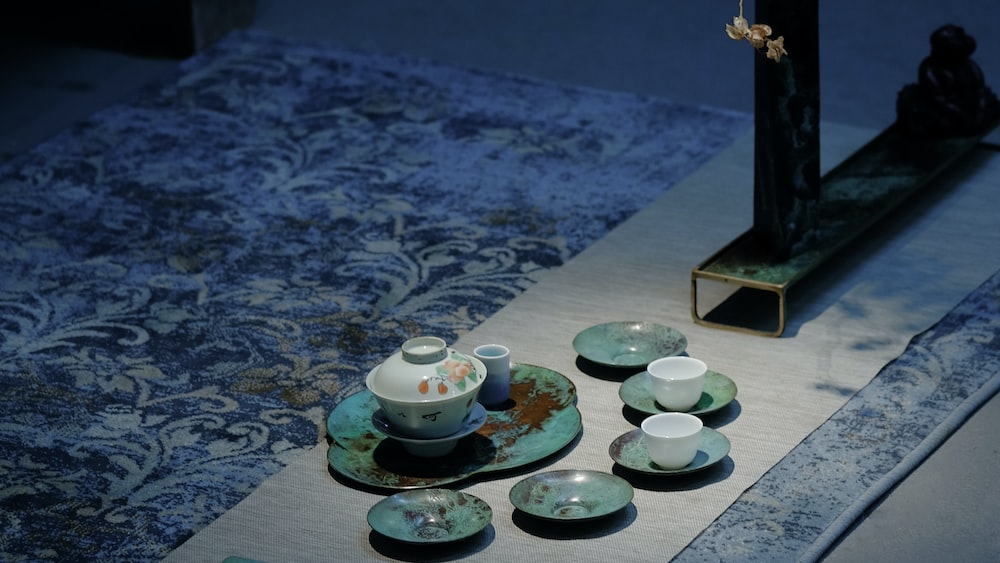
So yes, let’s go ahead and uncork the champagne because when it comes to histamine teas, Rooibos is like a secret agent working for the good guys.
How Rooibos Tea Can Act as a Natural Antihistamine
Having established the role of Rooibos tea histamine as an inside agent fighting for the good guys, let’s delve a bit deeper into its action. The perk we get by having a sneaky agent around is that it staves off inflammation without raising a ruckus. It successfully goes undercover, mind you, thanks to the flavonoids and polyphenols stacked in it, conspiring against histamine.
Like an added icing on the cake, rooibos tea also includes chrysoeriol, a flavonoid which is like your super-spy, that inhibits the enzyme responsible for histamine production (yeah, the bad guy in our tale). This makes rooibos tea the equivalent of a superhero in the universe of histamine teas.
So, all in all, rooibos tea squares up against histamine like Thor against Thanos, reducing inflammation, and asserting its supremacy in the tea cosmos.
Practical Tips for Incorporating Rooibos Tea into a Low Histamine Diet
Now, introducing rooibos tea in your diet is not some 12th-century secret rite. It’s simple, and we’ve got some handy tips up our sleeve to help you out. But important enough is to remember the golden rule, creating a balance. Rooibos tea may be a rockstar in itself, but it can’t do a solo gig. Your overall diet plays a crucial role.
How to Prepare Rooibos Tea
- First off, remember not to wage a war with your teapot. It should be a friendly encounter. Add 1.5 teaspoons of rooibos tea to it.
- Bring water to a rolling boil. You don’t need a geyser, a simple teakettle will do the trick.
- After you’ve achieved said rolling boil, give it a touch of grace. Pour it over rooibos tea and let it zen out for five minutes. We’re brewing magic potion here, remember?
Sip it as is, or add a hint of honey or lemon if you wish. Now, ladies and gents, you have a cup of golden goodness. Enjoy the delicious embrace of every sip delivering healthiness to your being!
Remember to approach your teapot with friendliness and pour boiling water over the rooibos tea to brew a magical cup of golden goodness that can be enjoyed as is or with a hint of honey or lemon.
Other Low Histamine Foods and Drinks to Consider
Championing the league of low histamine foods and drinks are a few worthy mentions. Fresh fruits (except strawberries, I know, quite the blow!) and veggies are your faithful allies. Essential for a functioning, happy biological ecosystem are fresh meat and fish.
So next time you’re sipping on your beautiful rooibos tea, pair it with ripe avocados or perhaps a juicy, tender-steak. And hey, other honorable mentions include chamomile tea and ginger tea. So, in your journey with low histamine diet, remember – variety is spice.
Potential Side Effects and Precactions
Now while we’ve been singing praises of rooibos tea, we don’t want to turn a blind eye to the potential caveats. Science speaks volumes, but invariably, one man’s meat can be another man’s poison. Thus, understand the potential side effects and precautions that are part and parcel of the rooibos saga. Stay tuned!
Who Should Avoid Rooibos Tea?
While rooibos tea has many benefits for the overall population, it does not mean it’s a free-for-all beverage. Indeed, a majority can enjoy rooibos tea without batting an eyelid, however there are a select few who might approach this more carefully than a cat eyeing a suspicious looking flower pot.
People with liver disease or kidney disease need to avoid rooibos tea. The chemical composition of the tea, despite being rich in antioxidants and low in tannins, might have undesirable implications for these individuals. Just as one wouldn’t wear snow boots to the beach, these individuals should steer clear of rooibos tea.
Furthermore, those who are pregnant or breastfeeding might wish to avoid rooibos tea. The oh-so-scientific term ‘err on the side of caution’ holds ever true in this case. While research surrounding these individuals and rooibos tea consumption is currently as puzzling as a chameleon in a bag of skittles, it’s best to consult with your healthcare provider before incorporating it into your diet plan just to be sure.
Possible Interactions and Contraindications
Now, I don’t want to throw a wrench into the works, but rooibos tea does have some possible interactions and contraindications. Imagine trying to dunk a biscuit into a closed jar, pretty complicated, right? That’s how rooibos gets when it meets certain medications.
Combining rooibos tea with chemotherapy drugs might decrease the effectiveness of the treatment to the level of trying to bake cookies without an oven. According to an animal study published in the Journal of Ethnopharmacology, rooibos tea decreased the efficacy of chemotherapy agents. So, if you’re under chemo, rooibos might be one tea to avoid.
Also, because rooibos tea has a blood-thinning effect, it’s the equivalent of throwing a monkey wrench into the cocktail mix if combined with anticoagulant drugs. So, as enthralling as the taste of this tea might be, don’t flirt with trouble if you’re on these medications. Always consult your healthcare provider, they love being consulted anyway.
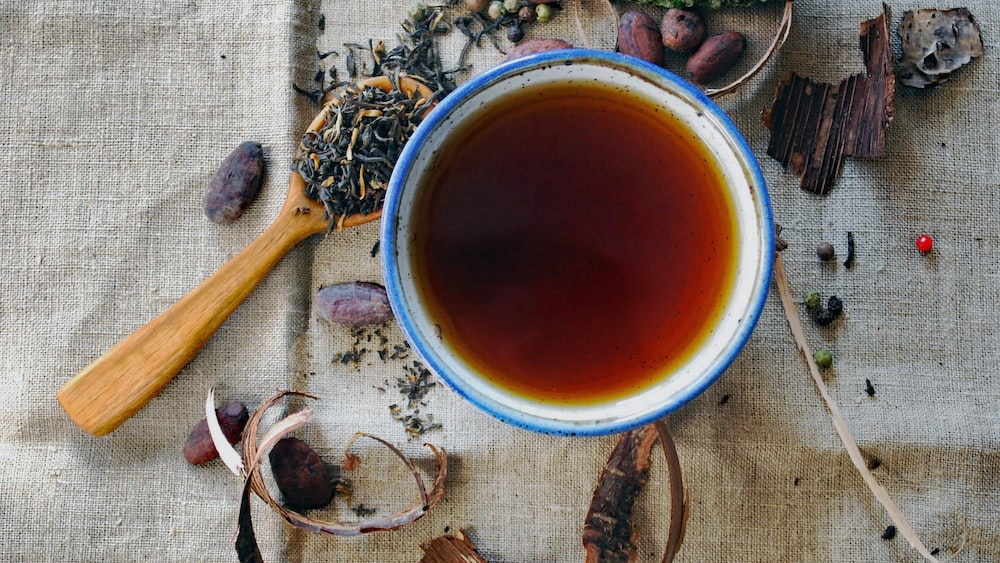
Combining rooibos tea with chemotherapy drugs may decrease the effectiveness of the treatment, similar to trying to bake cookies without an oven.
FAQs
1. Can Rooibos Tea Help with Allergies?
To the question if rooibos tea can be a helper in the battle against allergies, the answer is a resounding yes. Rooibos tea contains a bioflavonoid known as quercetin, which acts as a natural antihistamine.
2. How Much Rooibos Tea Should I Drink for Histamine Issues?
When deciding how much rooibos tea to sip for histamine issues, common advice suggests drinking between two to three cups a day. But never forget, one’s personal tolerance and health should always play the leading role in this teatime performance.
3. Can I Drink Rooibos Tea if I Have Histamine Intolerance?
Drinking rooibos tea is generally considered safe for individuals with histamine intolerance, especially as it may even help to alleviate symptoms due to its potential antihistamine properties. However, always pay heed to your body’s signals like a sailor to a lighthouse; if they seem negative, drop sail and consult your doctor.
4. Are There Other Teas That Are Low in Histamine?
Yes, there are indeed other teas out there in the big wide world that are low in histamine. Varieties such as green tea and pepermint tea, come to mind. These might feel like distant relatives to the rooibos family, but they also play a helping hand in keeping histamine levels in check.
Conclusion
Ah, just as all cups of tea eventually reach their last sips, we have now arrived at the end of our journey, having charted the waters of rooibos tea histamine understanding. We’ve learnt about mast cell activation syndrome, histamine foods, and of course, we’ve danced in the rainfall of knowledge about rooibos tea.
From its capabilities to act as a natural antihistamine, to understanding who should perhaps avoid this beverage, to pointers on how to incorporate it into a low histamine diet, we have wandered through the fields of rooibos tea, across its hills and dales, its flowers and shrubs.
As the curtain falls on our narrative, I hope that you, my fellow tea enthusiasts and health-conscious travellers, have enjoyed this journey just as much as I have. So the next time you sip your rooibos tea, remember, you’re consuming a universe of histamine knowledge in each cup. Till we meet again in the swirling aromas that rise from your next steeping, stay healthy, be safe and remember, everyone has their own cup of tea. This is Zoe bidding you a warm farewell.


